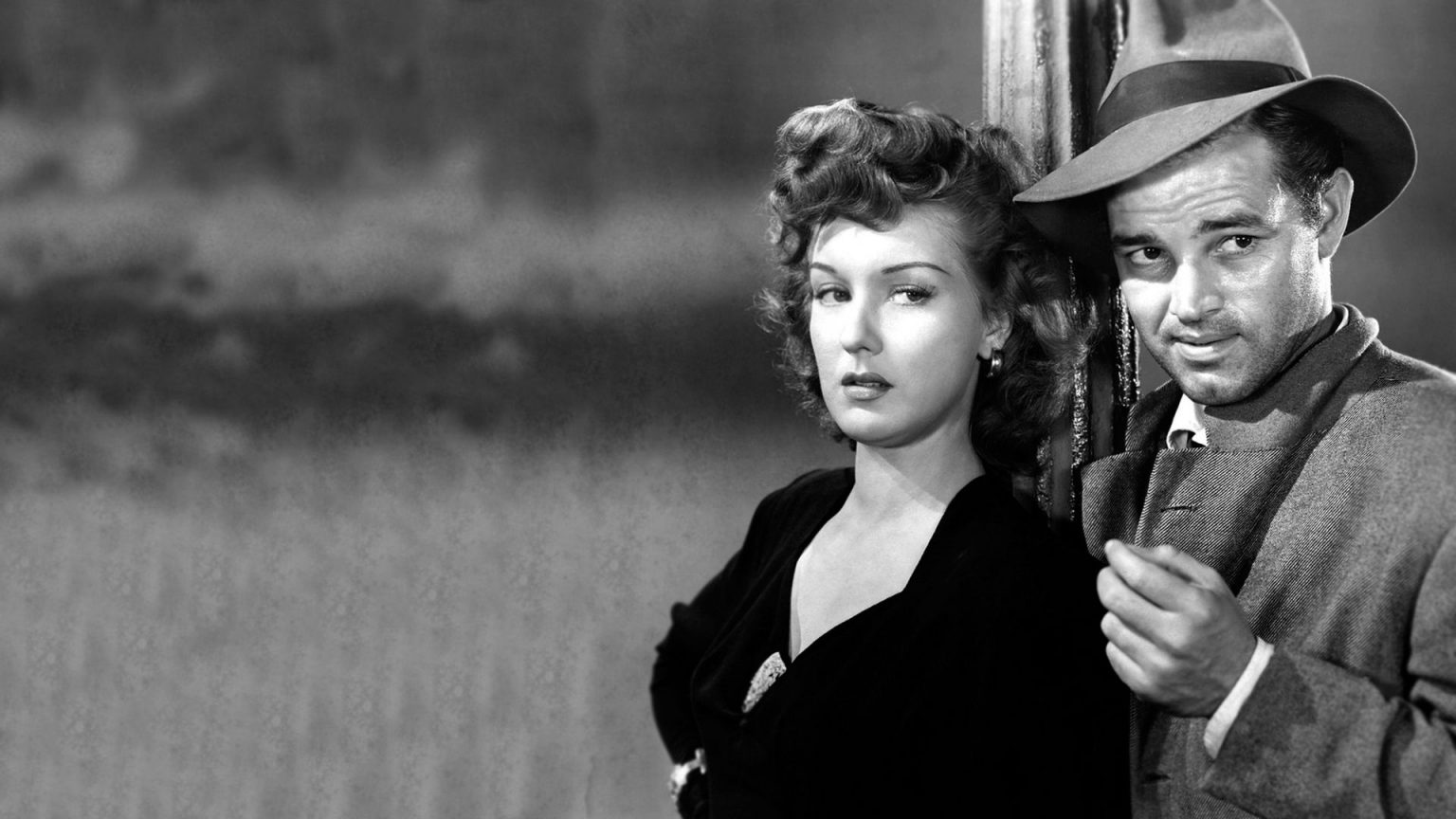By the 1940s, the Hollywood studios had developed a caste system, with the “Big Five” studios such as Paramount and Warner Brothers on top, the “Little” majors such as Columbia and Universal in the middle, and the Poverty Row outfits such as Monogram and Republic at the bottom. At the bottom of the bottom was Producers Releasing Corporation, a Poverty Row outfit with a questionable reputation. PRC had no qualms about ripping off A-level properties, such as its film Apology for Murder (1945), which was so unapologetically carbon copied from Double Indemnity (1944), PRC execs tried calling it Single Indemnity until Paramount’s lawsuit put a stop to that. However, despite these missteps, the studio was not devoid of talent. Edgar G. Ulmer was PRC’s bright spot, a director who had been exiled to Poverty Row after a promising start at Universal for fooling around with the wife of the nephew of the studio’s president. At PRC, he quickly re-established himself with Bluebeard (1944) and Strange Illusion (1945), which led into Detour, a film that has rightfully earned its reputation as a film noir classic.
Ulmer’s film begins like Double Indemnity, opening on a beaten-down man at the tail end of a bad situation. But unlike Walter Neff, who takes full responsibility for his sins, Al Roberts (Tom Neal) claims to be nothing other than a victim of fate. (Twenty years later, Neal would mount a similar defense when standing trial for murdering Gale Bennett, his estranged wife. Neal claimed that the bullet hole in the back of Bennett’s head was due to an accidental firearm discharge, not any intent on his part.) As Roberts explains through a voiceover that plays over an extended flashback, Al’s troubles began when he decided to hitchhike across the country to reunite with his girlfriend. Along the way, Charles Haskell Jr. (Edmund MacDonald) picked him up and promised a ride all the way to Los Angeles. But it wasn’t long before Haskell’s heart gave out in the middle of nowhere, and Al was faced with a decision—tell the cops that Haskell spontaneously croaked and risk being suspected of murder, or dump Haskell’s body in the desert and take his car, money, and identity.
After Al chose the latter, he picked up Vera (Ann Savage), a mysterious fellow hitchhiker who knew far more about Al’s situation than he’d anticipated. Savage’s performance has become the stuff of legend; she spits out her words like they’re bullets fired from a machine gun. (She later claimed Ulmer made her talk so fast because of how little film stock the production could afford.) Never before or since has an actress so fully embodied the brazen nastiness of the femme fatale.
Detour is also known for its bleak fatalism, a philosophy that would become a defining characteristic of film noir. However, the fatalistic narrative interpretation of the film’s events, which places its full faith in the essential truth of Al’s claims, too easily downplays how, just like in Double Indemnity, the entire story is filtered through the subjective perspective of the main character. The dying Walter Neff openly confesses to his crimes and is therefore believable. But as the body count rises in Detour, Al’s version of events becomes increasingly implausible, leading to a fascinating interpretive question—are any of his claims true? This narrative sleight of hand, in combination with Savage’s vicious performance and Ulmer’s effectively economical direction, make Detour a seminal entry in the noir canon.




